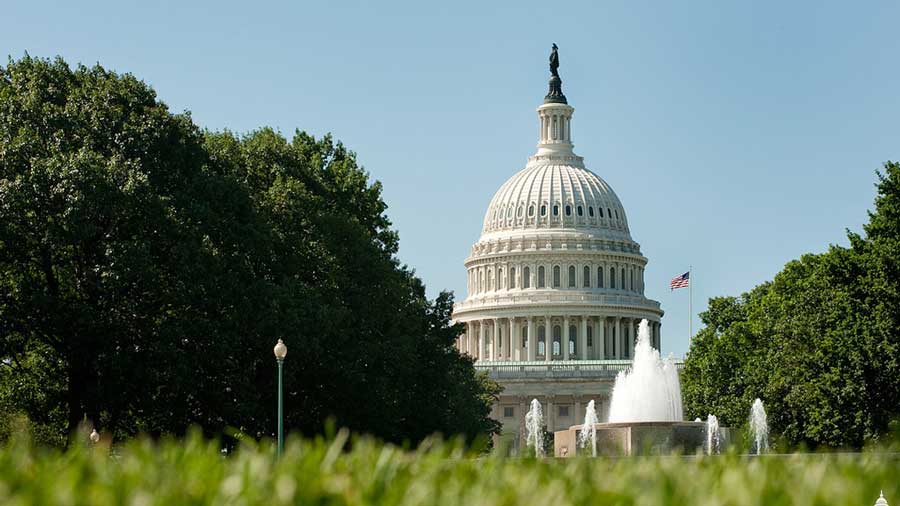FEC Proposes New 'Net Political Ad Disclosure Rules

The smarter way to stay on top of broadcasting and cable industry. Sign up below
You are now subscribed
Your newsletter sign-up was successful
The Federal Election Commission is proposing two approaches to disclaimers on internet political ads and is proposing to change the definition of public communications. It had sought comment on what changes to make, but now will seek more comment on what changes it is proposing to make.
At least one powerful senator said the time for talking was past and that it was time to act to boost online disclosures as the 2018 midterm election draws near.
The FEC last updated its internet disclaimer policy in 2006, the same year Twitter launched and Facebook was still in digital diapers.
Having reopened its docket to new comments on an existing inquiry into online political ad disclosures--which were due Nov. 13, 2017--the FEC subsequently voted to open the new rulemaking. The FEC initially sought comment on the issue way back in 2011.
The docket was reopened in the wake of revelations that Russia bought ads on social media powerhouses--Facebook, Twitter--to try and effect the 2016 presidential election.
The FEC, in releasing the draft proposal Wednesday (March 14) said the goal is to provide the clearest disclosures possible of show is sponsoring internet communications containing express advocacy, or soliciting contributions, or come from a PAC. IT is giving the public 60 days to comment, which will push a decision into the 2018 primary season.
Choice A, backed by Democrats, would be to apply the full disclaimer requirements that apply to radio and TV political ads to internet ads with audio or video components and current print disclaimers to the graphics and text in internet ads. Finally, it would include a provision for some smaller 'net communications--like banner ads--to satisfy the disclosure requirement via an "adapted disclaimer."
The smarter way to stay on top of broadcasting and cable industry. Sign up below
Such "adapted disclaimers" could include "a abbreviated disclaimer on the face of the communication in conjunction with a technological mechanism that leads to a full disclaimer."
A is based on the assumption that internet ads with audio or video are indistinguishable from radio or TV ads other than the means of distribution--many different formats on many different tech platforms.
Choice B, favored by Republicans, would treat internet communications differently from traditional media. It would require disclaimers to be clear and conspicuous and have the same general content requirements, but without the requirements that apply to TV, radio and print. It would require radio and TV political ads distributed over the internet simply to meet general disclaimer requirements that apply to all public communications requiring disclaimers, rather than the disclosures that apply when they are broadcast.
Related: FEC Hears It on Online Political Ad Disclosures
Option B is based on the premise that the internet is a unique medium with unique challenges, thus the general requirement without the "stand by this ad' requirement of TV and radio ads.
It would also allow some paid internet ads to satisfy the requirements using an adapted disclaimer depending on space or time constraints, and even a waiver for an ad that could not provide a disclaimer "even through a technological mechanism."
Both A and B would establish new, internet-specific disclaimer requirements.
The FEC has asked for comment on both proposals.
The change to the definition of public communication would expand it from “communications placed for a fee on another person’s Web site” to include those placed on "internet-enabled device or application," specifically "is a sufficiently clear and technically accurate way to refer to the various media through which paid internet communications can be sent and received."
“While I applaud the FEC for moving forward today, my hope was that the simple and overdue act of strengthening these disclaimer rules would have been completed by now," said Sen. Mark Warner (D-Va.), vice chairman of the Senate Intelligence Committee, which has been investigating Russian influence in the 2016 election, including via online ads and other communications. "The Commission’s current plan, which contemplates yet another round of comments, means rules concerning online political ads remain woefully behind the commonsense standards we apply to political ads on TV and other media – just as the country begins the primary season for the upcoming 2018 mid-term elections."
In November 2017, Warner joined with other legislators to call on the FEC to act swiftly to boost transparency for online political ads. Warner also introduced the Honest Ads Act, which takes an "option A" approach by "ensuring that political ads sold online are covered by the same "we paid for these ad" disclosure rules as radio and TV ads.
"“Congress must recognize that our current laws are simply not adequate to deal with the national security threats we face from foreign adversaries like Russia, and other bad actors," said Warner. "While no one law alone will completely protect our democracy, updating our election laws is a simple and important start. Bipartisan legislation like the Honest Ads Act is needed to bring true parity between digital political ads and ads running on broadcast, satellite, and cable services.”
Contributing editor John Eggerton has been an editor and/or writer on media regulation, legislation and policy for over four decades, including covering the FCC, FTC, Congress, the major media trade associations, and the federal courts. In addition to Multichannel News and Broadcasting + Cable, his work has appeared in Radio World, TV Technology, TV Fax, This Week in Consumer Electronics, Variety and the Encyclopedia Britannica.

